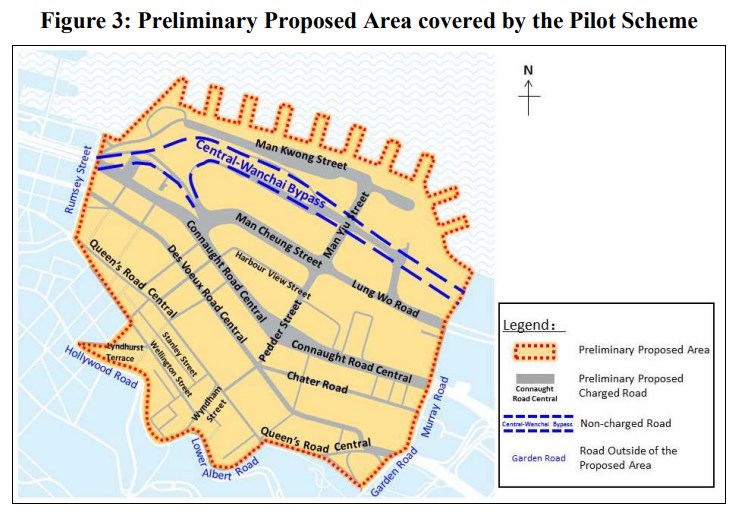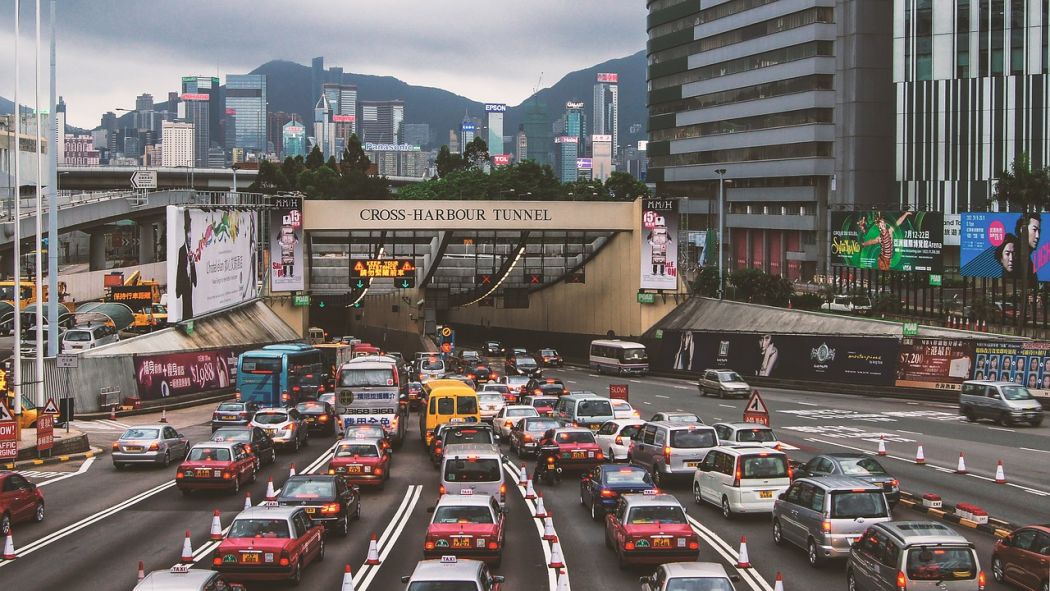By Wendell Chan
After a three-year lull, the Transport Department is back at it again, launching a dedicated website for the proposed electronic road pricing scheme. In a city with limited road space, electronic road pricing makes sense for Hong Kong.

The benefits of alleviating congestion have been repeatedly stated in the past, but they deserve to be said again. Increased traffic speeds may seem relatively minor when they estimate only an increase of 3-5 km/h. However, when put into the context of peak hour traffic going below 10 km/h, this is a massive increase. For us, this doesn’t just translate to shorter commuting time. Long commutes cause more stress – with the effects beginning as early as 15 minutes into the journey. Considering its role as a proxy to a multitude of diseases, having less stressful commutes is certainly a big plus. As a bonus – if you hate the incessant honking that accompanies traffic jams – smoother traffic should also calm road rage.
Another benefit of congestion pricing is that it incentivises commuters to shift to public transportation. Vehicles are the main culprit of roadside air pollution. Aside from causing various respiratory and cardiovascular diseases, we now know that air pollution also harms cognitive development and can lead to cognitive decline and dementia. Getting cars off the road not only improves air quality directly by removing the offending emitters; it also improves the air quality indirectly by reducing stop-and-go congestion and allowing car engines to run more efficiently and tyres to not wear down as quickly.

Of course, electronic road pricing alone is not going to solve traffic congestion. Some people will shell out the money for the luxury of not taking a bus; others need goods delivered at specific times. It will also not stop drivers from illegally parking. Electronic road pricing needs to be paired with traffic enforcement measures and a holistic transport policy – such as providing better transport infrastructure, taking back the reins of public transport development strategy, and controlling the growth of private cars.
Hong Kong was one of the first cities, if not the first city to float the idea of electronic road pricing. Several decades later, we are still stuck at the planning stage. Cities like London and Singapore have already shown its effectiveness. Rather than wallow in traffic jams and choke on polluted air, it is high time that we put a price on congestion.
Wendell Chan is the Programme Officer at Friends of the Earth (HK).
